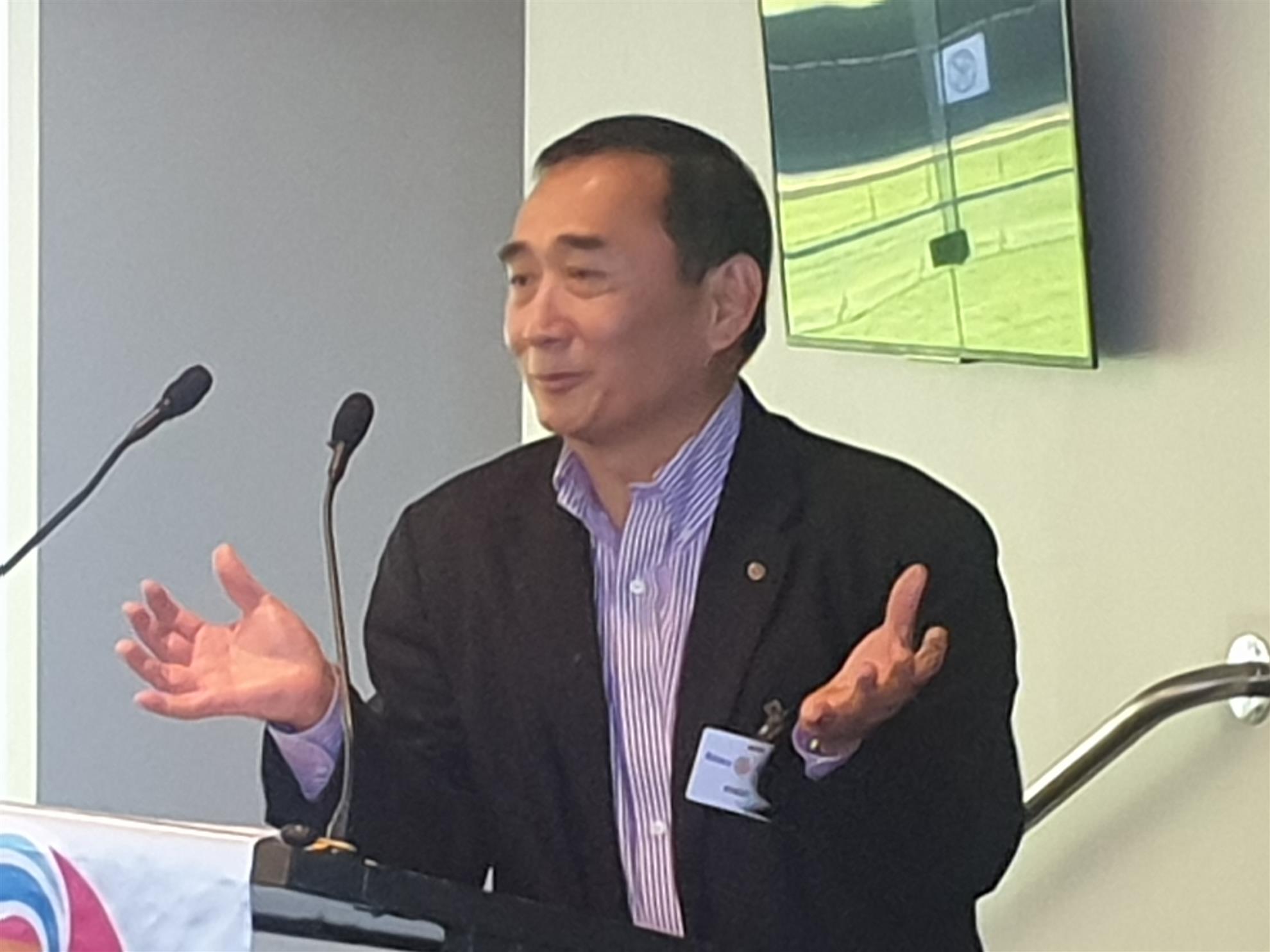
Robert briefly reprised recent address regarding the “China dream” and the “Belt and road” program which has been put in place by the President of China Xin Ji Ping.
Members will recall the China dream is the intention to return China to the position of respect and prominence that it occupied world affairs before the 18th century when it experienced what is described as the century of shame.
The Belt and Road is designed to connect China to Europe at least on the surface. Underlying that is a greater intention to connect with the rest of the world.
At this point in his address Robert talked about ambiguity and how for for the Chinese ambiguity is in fact clarity.
He emphasised this by asking us what the distance was from Ellerslie Convention Centre to the corner of Khyber Pass and Broadway. Members suggested that it was some 2.5 to 3 km. Robert told us that the Chinese response to that question would be “not far – not close, okay”. In other words no distances are specified but the words mean the destination is neither far away nor close but somewhere in between. Put into other words it means what you want to mean.
The point Robert was making was that the Belt and Road is an umbrella giving expression to engagement with the rest of the will not is. The principle underpinning the Belt and Road initiative is “trade together built together and enjoy together”
This leads onto the question of New Zealand’s engagement with China as New Zealand appears to be outside the main focus of the Belt and Road initiative. Robert put this way how close does New Zealand want to be too China and/or how relevant we want to be.
At this time Robert offered us another aphorism which does sum up China which is “everything is right until it is wrong”. In human terms Robert pointed to a colony of African illegal immigrants in Qingdao whose presence the Chinese authorities tolerate because they are trading happily between Africa and China they they are there until the Chinese authorities decide they should not be there.
Issues have arisen with respect to the Pacific and this is which of Robert’s address was quite interesting there is a lot of Chinese investment in the Pacific, Tonga, samoa and Fiji. The question is what happens if those countries default on their obligations to China.
Robert offered the view that because in comparison to other areas of the world for example Africa China’s investment is so small a default will be of no consequence. Robert considers that the Pacific is well-placed to take advantage advantage of China as it is too small to be a threat or risk. Consequently China is unlikely to do anything in case of default. The contrary view would be that the default and subsequent inaction by China would lead to a loss of face so that China would consider itself obliged to act rather than sit on its hands. I hope we don't find out what view is correct.
Robert commented on China US relations. He feels that China takes the view the current impasse is not about trade it’s more about global prominence. especially having regard to the Chinese desire to be a leader in 10 technologies including information technology A & I, robotics green vehicles agricultural machinery the list goes on. This is regarded as a challenge by the United States hence causing to some extent the conflict.
As a consequence the Americans want to decouple from China - for example the United States wants China to give up its 2025 vision. To make that happen there is a threat to stop the provision of high-end semiconductors which China may concede in order to win its long-term objectives encapsulated in the China dream. China is of course playing the long game while the Americans seem to play the short game.
Robert’s address was intriguing and is likely to be followed by a third presentation on the subject.
